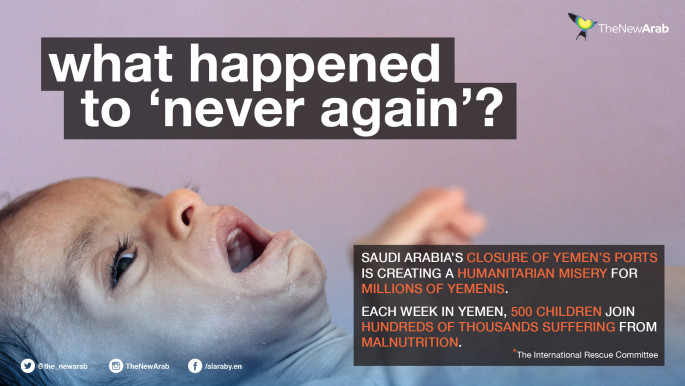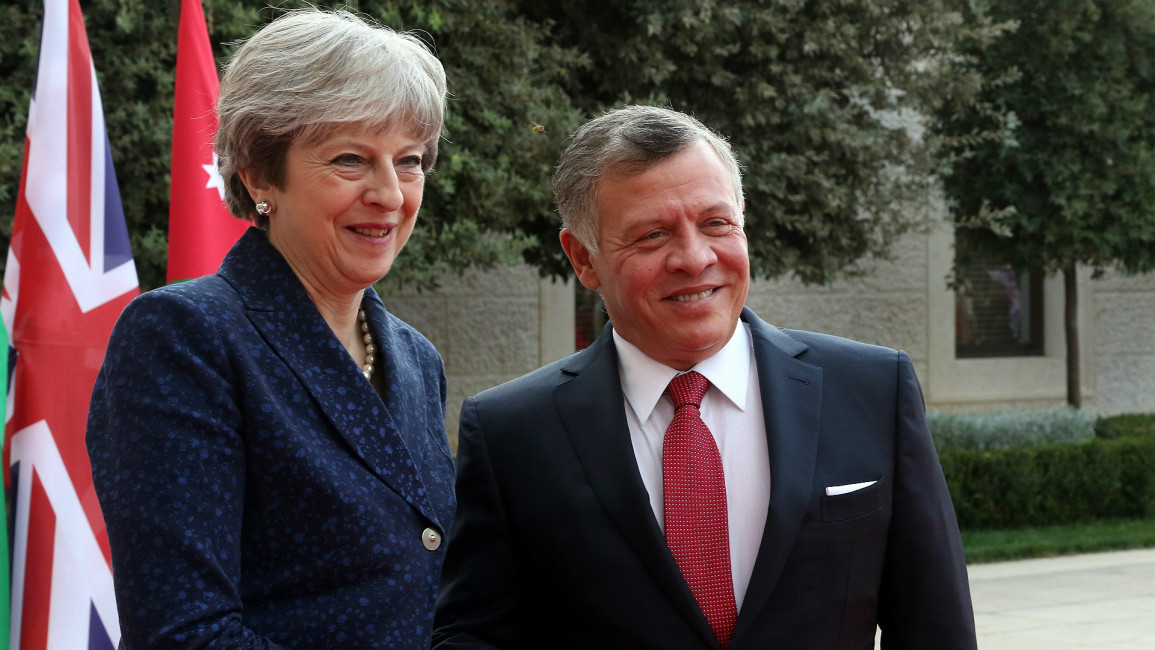UK and Jordan will work to 'deliver an ambitious post-Brexit trade deal'
Theresa May pledged tens of millions of pounds in additional aid, singling out Jordan, and said Britain will negotiate a post-Brexit trade deal with the pro-Western kingdom.
In a wide-ranging foreign policy speech in Jordan's capital, May also addressed the wars in Yemen and Syria, and the long-running Israeli-Palestinian conflict. May said that while incitement to violence and denial of Israel's right to exist must stop, "those actions of the Israeli government which create an obstacle to peace – not least illegal settlement construction – must also stop."
Lift Yemen blockade
May called on a Saudi-led coalition fighting Houthi rebels in Yemen to lift a sea and air blockade of the war-stricken country which has teetered on the brink of famine.
| Read also: 'Collective punishment' in Yemen risks driving 500 children into malnutrition every week |
The coalition tightened the blockade earlier this month, in response to a rebel missile launch toward the Saudi capital.
The British leader said that in talks with Saudi Arabia's crown prince on Wednesday, "we agreed that steps needed to be taken as a matter of urgency to address this."
May has faced increasing calls to stop British arms sales to Saudi Arabia. Britain has licenced over $6.1 billion worth of arms sales to the kingdom since the war began.
 |
|
Trump visit 'still on'
|
||
May's three-day trip to Saudi Arabia, Iraq and Jordan was overshadowed by a row with President Donald Trump, over his stoking of anti-Islam sentiments.
In Thursday's speech, she said Trump's retweets of inflammatory anti-Muslim videos by a "hateful" far-right British political group were "the wrong thing to do."
But May dug in her heels over mounting calls to cancel Trump's planned state visit to Britain. She said the visit was still on – though she suggested it was not imminent.
"An invitation for a state visit has been extended and has been accepted," she said. "We have yet to set a date."
| Read also: It's open season on Muslims, and Trumps tweets prove it |
Deeper ties with Jordan
May's speech came after a meeting with Jordan's King Abdullah II, seen as a leading champion of religious tolerance and a partner in the campaign against militants.
The British leader reassured Arab allies that her country would remain engaged in the region in a post-Brexit era, saying that "we are making a new, ambitious and optimistic offer of partnership."
"To those who ask if the United Kingdom is in danger of stepping back from the world, I say nothing could be further from the truth," she said.
 |
To those who ask if the United Kingdom is in danger of stepping back from the world, I say nothing could be further from the truth |  |
May singled out Jordan, saying deeper security and economic ties with the kingdom were the centrepiece of her commitment.
She promised 94.5 million pounds ($128 million) to support Jordan's economy, including $80 million for investment grants and infrastructure projects.
May also said the two countries would work to "deliver an ambitious post-Brexit trade deal."
Abdullah said earlier on Thursday that economic support from Britain "will be very critical."
Jordan's stability is seen as a priority by Western allies who have expressed growing concern about the kingdom's economic problems.
Economic growth has been sluggish because of the spillover from conflicts in neighbouring Syria and Iraq, such as trade disruptions and the influx of hundreds of thousands of Syrian refugees. Youth unemployment has risen above 30 percent.
At the same time, Jordan is under pressure to lower its public debt, and has undertaken painful reforms, including reductions in subsidies.



